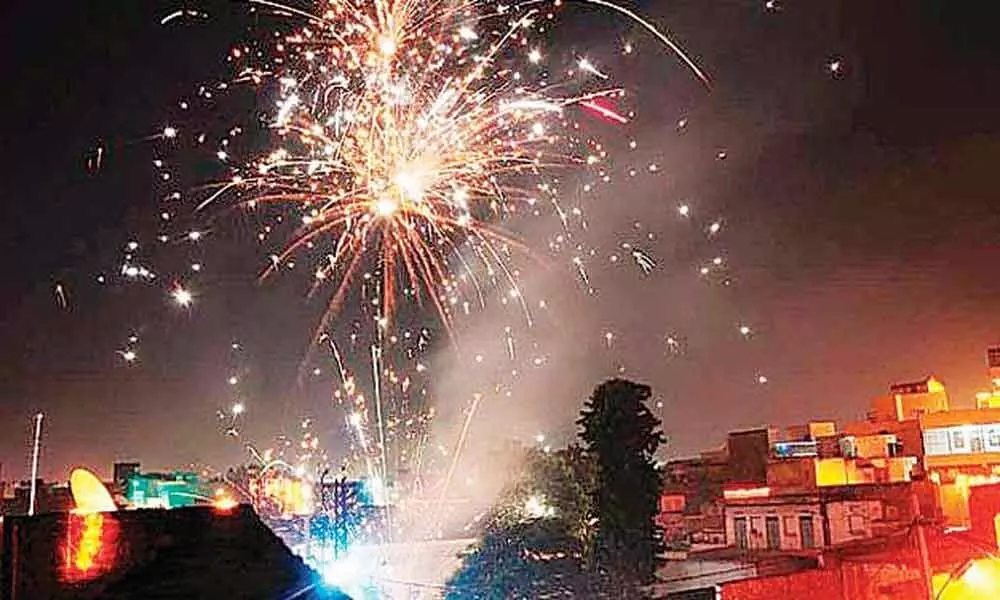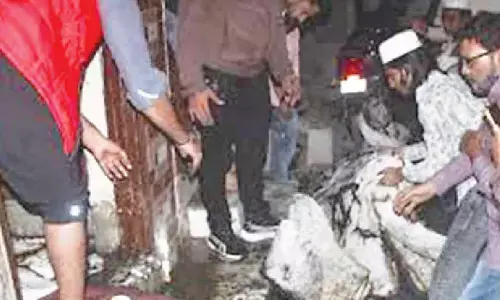Diwali effect Air pollution increases three times

Citizens in Hyderabad breathed very dangerous air on Diwali night and the effect is still continuing.
Hyderabad: Citizens in Hyderabad breathed very dangerous air on Diwali night and the effect is still continuing. It might take four more days to get back to normalcy, say officials of Telangana State Pollution Control Board.
According to the Telangana State Pollution Control Board, the concentration of the particulate matter 2.5 increased by three times when compared to normal day. Many areas of Hyderabad observed higher and above permissible limits of particulate matter count on Diwali. Not only air, the impact is also seen on noise levels which rose higher in residential and sensitive areas.
The accurate air quality monitoring is being carried out from October 20 and will be continued up to November 3. The particulate matter of less than 2.5 microns for the standard 24 hours tripled on October 27 with 71.6 ug/m3 whereas normally, it records 22 ug/m3 and the average can be 60 ug/m3 .
The hourly average of the air quality data at the six locations (Bollarum, ICRISAT, Sanath nagar, Zoo park, Pashamylaram, HCU ) during the evening hours on Diwali day (27th October) from 5 pm onwards indicate gradual increase in concentrations and also higher contribution to PM2.5.
The average wind speed of Hyderabad in general is 2.8mts/sec; however, on 27-10-2019 the wind speed on an average was around 0.5mtrs/sec, indicating poor dispersion. During the last year the wind speed was about 1.6mtrs/sec. Relative humidity is about 75%. The stronger the wind, greater will be the dilution of pollutant. On the other hand, stable air discourages the dispersion and the diffusion of the pollutants.
The noise levels are being monitored in and around city at 10 locations through continuous Real Time Noise monitoring stations that capture data at regular intervals. The noise levels have increased marginally in residential and sensitive areas.










